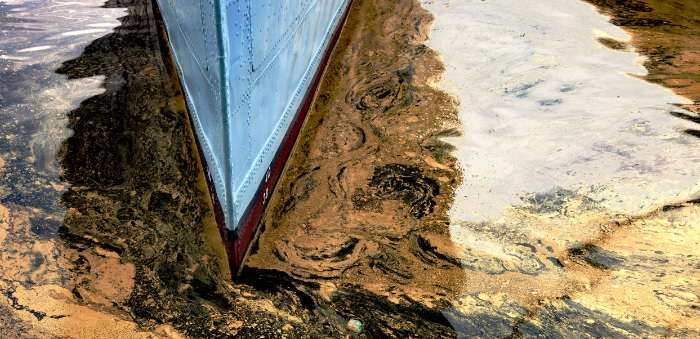Speaking to the news agency AFP, a spokeswoman for the Greek coastguard said the investigation conducted in Brazil, indicated showed that five vessels from different countries are suspects for the large oil spill, including a Greek one.
The ships have now left Brazil, however there will be comprehensive controls by the Greek authorities, if these vessels arrive at a Greek port.
As of now, investigators in Brazil have studied 1,100 ships that are navigating through the area, and managed to narrow the potential culprits down to 30. As a result, investigators suggested that a Greek-flagged tanker, carrying Venezuelan oil, is the main suspect of this polluting situation.
[smlsubform prepend=”GET THE SAFETY4SEA IN YOUR INBOX!” showname=false emailtxt=”” emailholder=”Enter your email address” showsubmit=true submittxt=”Submit” jsthanks=false thankyou=”Thank you for subscribing to our mailing list”]
However, the Greek Company, Delta Tankers Ltd. denies all accusations supporting that their vessel reached its destination without any problem. In fact, Delta Tankers Ltd. issued a statement according to which:
There is no proof of the vessel having stopped, conducted any kind of STS operation (Ship to Ship), oil leaked/spilled, slowed down or veered off course, on its passage from Venezuela to Melaka, Malaysia
In addition, the company highlighted that they also conducted a full investigation of the material from the cameras and sensors that all their vessels carry as part of their safety and environmental policies, to monitor activity on board, activity alongside the vessel, as well as course alternations, stoppages, speed etc.
As was reported yesterday, November 1, in Delta Tankers’ initial statement, their vessel sailed from Venezuela in laden condition on July 19, 2019 heading directly, with no stops at other ports, for Melaka, Malaysia, where she discharged her entire cargo without any shortage
Almost two months have passed since a thick black sludge was first seen in the Pernambuco coast. Still, the government of Brazil hasn’t found the main factor of the oil spillage. As a result, the spill keeps infecting the shores in northeastern Brazil and polluting more than 100 beaches, counting some of the country’s most popular.






























































